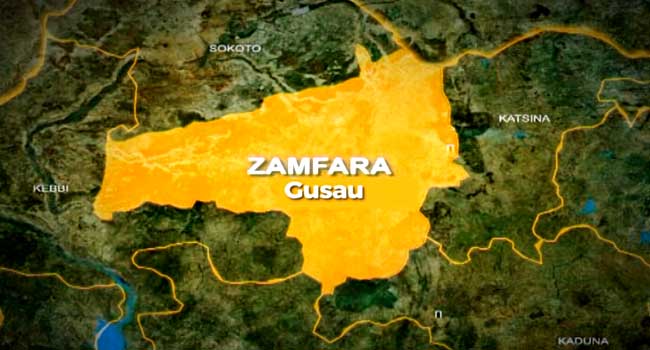NAIRA APPRECIATION: Don’t expect reduction in price of commodities now, Experts warn Nigerians

• Cost of labour, farm inputs and transportation still high, says Suberu
• Only mechanised farming will address Nigeria’s food crisis – Apeji
• ‘Insecurity is a major factor government must address to encourage farmers to return to farms’
Although the naira has appreciated significantly against the dollar in the last two weeks to the relief of many Nigerians, the price of foodstuff and other agro commodities is yet to fall.
The official figures indicate that the naira closed the month of March at N1309/$1 on the last trading day, up from N1595.11/$1 at the end of February.
This 21.8 per cent gain points to the success of several forex policies, strategies and interventions by the Central Bank of Nigeria (CBN) all aimed at stabilising and strengthening the national currency.

Even last week, the exchange rate further improved to between the range of N1250/$1 and $1280/$1, highlighting the effectiveness of the measures taken to bridge the gap between the official and unofficial currency markets.
But despite the expected turnaround, especially anticipation for the reduction in the price of foodstuffs, Nigerians have continued to groan under the burden of hike in the cost of food, which has remained high. And experts have warned that the trend would continue until the government takes further steps, especially towards encouraging agriculture and food production in the country.
For instance, a custard plastic size of garri, which jumped to N2500 in February when the exchange rate was around N1700/$1, is currently between the range of N2600 and N2800. A 50kg bag of rice, which jumped from N50, 000 to between N75, 000 and N80, 000 is still around N70,000, while price of other agro commodities have remained unchanged.
The CEO of Oreka Farms Limited, Ruth Suberu, told The Guardian that the price of food commodities would not come down anytime soon, saying the reduction of prices depends on some key factors.
According to him, the gains of the naira in the foreign exchange market would not take care of insecurity and other lingering challenges facing the sector.
His words: “The planting season is just starting for farmers depending on rain and with the high cost of inputs I do not see prices coming down soon.
“Farming is a process; the end result is what is referred to as food. The processes vary; using tomatoes as an illustration, it will be nursed, then from nursery to transplanting, vegetative stage, flowering stage, fruiting stage and then harvest. The same also applies to other crops either nursing or planting direct; it also applies to livestock farming and part of these stages was at that time when the exchange rate was high; inputs were used at various stages.
“Even after naira has appreciated, there has not been any reduction in prices of inputs. During dry season, fuel is needed to power water pumps. The cost of hiring workers, scarcity of labourers and insecurity has affected some farmers who abandoned their farms to stay alive. All of these are factors responsible for continuous increase of cost of food commodities,” she said.
Suberu added that factors like cost of inputs, insecurity, cost of fuel, lack of workers, lack of funds for farmers to increase production and others must be tackled headlong to address hike in price of agro commodities.
The Chief Executive Officer, Renee Golden Multiventures, Lagos, Adenike Apeji, who also noted that the country is not in any way close to the solution to the food crisis in the country, suggested that the main challenge for food and hunger in Nigeria is mechanisation.
“Actually, we have not been practicing agriculture. Agriculture basically is powered by mechanisation and the right processes, like agronomic processes; we see that there is a gap in that. Smallholder farmers have been doing basically a little here and a little there. They are not being empowered appropriately; we can see that there is a big gap.
Food Market
“Again, let’s look at food glut, after post-harvest challenge, it is another challenge faced by farmers. All these can only be improved when we are powered by mechanisation, which makes us to practice agriculture. So, if we have not begun to speak into that area, it might be difficult for us to get it right.
“So, what is the process and the plan for us to look at to cultivate more? One of the major problems is security. What have we done to improve on that? All these are critical areas that need to be addressed. There’s need for a proper plan,” she said.
Apeji lamented that mechanisation in Nigeria is just about 10 per cent, compared to other developed nations, which are on about 90 to 95 per cent mechanization.
“How do we intend to feed that population with this level of mechanisation. We need to tackle the challenge from where the main issue is.
“We are still in the realm of putting round peg in a square hole. One of the things I think we need to take serious in Nigeria is not just bringing policies; we need to ensure that we have proper strategy in place for implementation and implementation basically is just knowing what to do and doing them accurately.”
An industrialist, Mr. Durodola Omolewa Kuteyi, who lamented that the reduction in the price of commodities is not visible for now, said: “It was easy then to say that the value of dollar is increasing against naira and it was easy to adjust prices upward, now for prices to come down is another issue.
“The high price of diesel is part of the problem; the price has refused to come down. The price of sugar, which is the major raw material for many industries, has not come down. How do you expect the price of other finished products to come down?
“For example, look at the price of cocoa that used to be N4m per tonne is now N13m per tonne. Because the farmers know the export price of cocoa more than any other person, they sell at that price to the extent that local manufacturers cannot produce. Due to the fact that they have exporters who are patronising them and buying at that price, it has become difficult for the local processors to survive.
“For now, it is not visible to expect that the price of our finished products will come down,” he said.
Kuteyi, who is the Managing Director, Spectra Industries Limited, Lagos, appealed to manage their expectation for now, insisting that things will begin to normalise once other factors are taken care of.
To the Chairman, All Farmers Association of Nigeria (AFAN), Lagos State Chapter, Chief Femi Oke, reduction in the prices of commodities is a gradual process expressing optimism that price of commodities will come down soon.
“What many of us even acquired as at the period the dollar/naira rate was high are still in the farm. It is not something that can be addressed within a day. When we are talking about the fall in the price of foodstuffs, it cannot be an instant issue, it is a gradual process. We still hope that commodity prices will still come down. Definitely, the price will come down; even the farmers are not excluded.”
Source: Opera News/Guardian









